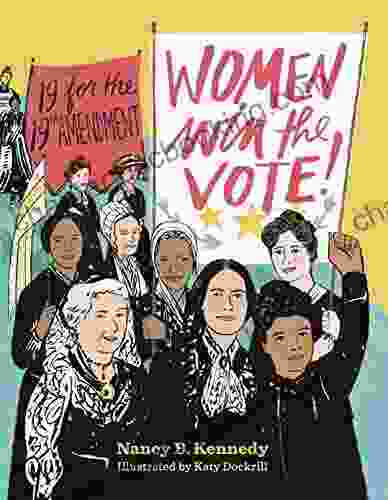North American Business Schools: The Post-WWII Transformation

4.7 out of 5
| Language | : | English |
| File size | : | 868 KB |
| Text-to-Speech | : | Enabled |
| Screen Reader | : | Supported |
| Enhanced typesetting | : | Enabled |
| Word Wise | : | Enabled |
| Print length | : | 378 pages |
The Second World War marked a turning point in the history of North American business schools. The war created a surge in demand for highly trained business professionals, leading to rapid growth and transformation within these institutions. In the years that followed, North American business schools played a pivotal role in shaping global business education and economic development.
The Rise of the MBA
One of the most significant developments during this period was the rise of the Master of Business Administration (MBA) degree. Prior to the war, MBAs were relatively uncommon, but their popularity soared in the post-war era. This was due in part to the increasing complexity of business and the need for managers with a broad understanding of different business functions.
The MBA curriculum evolved to focus on a combination of theoretical knowledge and practical skills. Students learned about accounting, finance, marketing, and operations management. They also developed strong analytical and decision-making abilities. The MBA quickly became the gold standard for business education, and it remains so to this day.
The Spread of Business Education
The post-war period also saw a rapid expansion of business education beyond the traditional Ivy League schools. New business schools were founded at universities across North America, including the University of Chicago, Stanford University, and the Massachusetts Institute of Technology (MIT). These schools attracted top faculty and students, and they quickly established themselves as leading centers of business education.
The spread of business education helped to democratize access to higher education. It also created a more diverse pool of business leaders, which contributed to the growth and innovation of the North American economy.
The Internationalization of Business Education
In the post-war era, North American business schools began to play a more active role on the international stage. They established partnerships with universities in other countries, and they welcomed students from all over the world. This internationalization of business education helped to spread American business practices and ideas around the globe.
The internationalization of business education also had a positive impact on the North American economy. It helped to create a more globalized workforce, and it fostered economic growth and cooperation between nations.
The Impact of Technology
The development and adoption of new technologies also played a significant role in the transformation of business education in the post-war era. The use of computers, for example, revolutionized the way that students learned about business. They could now access vast amounts of information and data, and they could use software to simulate business scenarios and make decisions.
Technology also made it possible for business schools to offer online and distance learning programs. This expanded access to business education even further, and it made it possible for students to learn at their own pace and on their own schedule.
The Legacy of North American Business Schools
The North American business schools that emerged after World War II have had a profound impact on the global business landscape. They have produced generations of highly skilled and successful business leaders. They have also been instrumental in the development and spread of American business practices and ideas.
The legacy of North American business schools is one of innovation, excellence, and global impact. As these institutions continue to evolve and adapt to the changing needs of the business world, they will undoubtedly continue to play a leading role in shaping the future of business education and economic development.
Further Reading
- Harvard Business School
- Stanford Graduate School of Business
- MIT Sloan School of Management
- University of Chicago Booth School of Business
- Wharton School of the University of Pennsylvania

4.7 out of 5
| Language | : | English |
| File size | : | 868 KB |
| Text-to-Speech | : | Enabled |
| Screen Reader | : | Supported |
| Enhanced typesetting | : | Enabled |
| Word Wise | : | Enabled |
| Print length | : | 378 pages |
Do you want to contribute by writing guest posts on this blog?
Please contact us and send us a resume of previous articles that you have written.
 Book
Book Novel
Novel Page
Page Chapter
Chapter Text
Text Story
Story Genre
Genre Reader
Reader Library
Library Paperback
Paperback E-book
E-book Magazine
Magazine Newspaper
Newspaper Paragraph
Paragraph Sentence
Sentence Bookmark
Bookmark Shelf
Shelf Glossary
Glossary Bibliography
Bibliography Foreword
Foreword Preface
Preface Synopsis
Synopsis Annotation
Annotation Footnote
Footnote Manuscript
Manuscript Scroll
Scroll Codex
Codex Tome
Tome Bestseller
Bestseller Classics
Classics Library card
Library card Narrative
Narrative Biography
Biography Autobiography
Autobiography Memoir
Memoir Reference
Reference Encyclopedia
Encyclopedia Mikael Lindnord
Mikael Lindnord Mindy Cockeram
Mindy Cockeram Michael Imperioli
Michael Imperioli Pinoy Stitch
Pinoy Stitch Paola Opal
Paola Opal Mindfulness Hypnosis Academy
Mindfulness Hypnosis Academy Mosby
Mosby Laurie Forest
Laurie Forest Zach Anner
Zach Anner Merlin Tuttle
Merlin Tuttle Tarjei Kristiansen
Tarjei Kristiansen Nancy Johnson
Nancy Johnson Neil Hutchison
Neil Hutchison Oprah Winfrey
Oprah Winfrey Mingmei Yip
Mingmei Yip Robert W Cohen
Robert W Cohen Nicholas Sparks
Nicholas Sparks Steve Flink
Steve Flink R G Collingwood
R G Collingwood Michael Phillips
Michael Phillips
Light bulbAdvertise smarter! Our strategic ad space ensures maximum exposure. Reserve your spot today!

 Troy SimmonsUnlock the Enchanting World of 18th-Century Philadelphia with "Diary of Sally...
Troy SimmonsUnlock the Enchanting World of 18th-Century Philadelphia with "Diary of Sally...
 Stephen KingUnveiling the Secrets of 'She Obsessed': A Gripping Tale of Love, Lies, and...
Stephen KingUnveiling the Secrets of 'She Obsessed': A Gripping Tale of Love, Lies, and...
 Milton BellUnleash the Power of Mirka Andolfo's Bombshells in DC Comics Bombshells 2024...
Milton BellUnleash the Power of Mirka Andolfo's Bombshells in DC Comics Bombshells 2024...
 Quentin PowellExplore the Brilliance of Richard Feynman: A Journey Through His Best Short...
Quentin PowellExplore the Brilliance of Richard Feynman: A Journey Through His Best Short... Christian CarterFollow ·10.7k
Christian CarterFollow ·10.7k Ivan TurnerFollow ·17.5k
Ivan TurnerFollow ·17.5k Gabriel BlairFollow ·10.7k
Gabriel BlairFollow ·10.7k Jason HayesFollow ·11.8k
Jason HayesFollow ·11.8k Ian McEwanFollow ·19.7k
Ian McEwanFollow ·19.7k Sean TurnerFollow ·8.7k
Sean TurnerFollow ·8.7k Terry BellFollow ·4.9k
Terry BellFollow ·4.9k Will WardFollow ·13.2k
Will WardFollow ·13.2k

 Trevor Bell
Trevor BellUncover the Thrilling Mystery in "It Ain't Over, Cole...
Prepare yourself...

 Garrett Bell
Garrett BellHow to Stay True to Yourself and Stand Out From the Crowd
In a world that...

 Dennis Hayes
Dennis HayesDrill Instructor Strategies And Tactics For Success
Unleash Your Inner Warrior and Conquer...

 Guy Powell
Guy Powell101 Awesome Women Who Changed Our World: A Celebration of...
Throughout history,...

 Ashton Reed
Ashton ReedAn Iraq War Tank Commander's Inspirational Memoir of...
When he was just 19 years old, John Q....

 Dean Cox
Dean CoxLady Trader in the Transvaal: A Literary Safari through a...
Prologue: A Journey into the...
4.7 out of 5
| Language | : | English |
| File size | : | 868 KB |
| Text-to-Speech | : | Enabled |
| Screen Reader | : | Supported |
| Enhanced typesetting | : | Enabled |
| Word Wise | : | Enabled |
| Print length | : | 378 pages |




